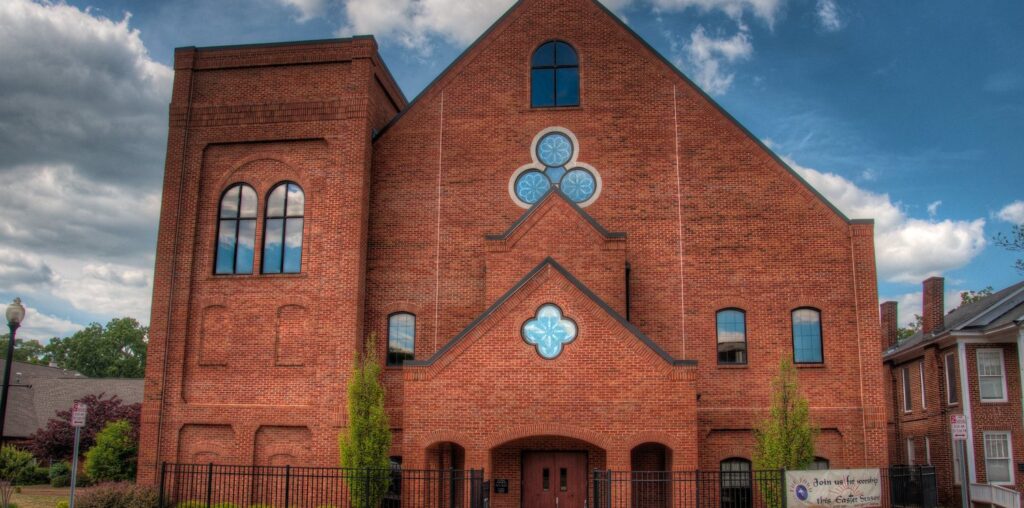
In return for non-profit status, federal law forbids churches and others to back political candidates — a limitation now facing two potentially significant federal court challenges.
The mandatory Form 990 information covers non-profits’ revenue, spending on their mission and on administrative and fundraising overhead, salaries of top officials and the names of board members and large contractors. MinistryWatch President Warren Cole Smith says religious groups “that clearly are not churches” are adopting this status “to keep not only the government, but also donors, from seeing how their money is being spent.”
A separate 990 schedule, not made public by the IRS, lists names and addresses of donors. Some groups say they need to avoid Form 990 filing because this supposedly private information has sometimes been leaked and can be used to harass conservative and religious donors.
The “church” status gambit, associated in the past with some shady operations, has been used in recent years by such reputable ministries as the Billy Graham Evangelistic Association, Compassion International, Cru (formerly known as Campus Crusade for Christ), Ethnos 360 (formerly New Tribes Mission), the Gideons, the Navigators and Trans World Radio.
Such organizations have long been called “para-church,” meaning that they are supported by a variety of national denominations, local congregations and individual donors that unite behind their specialized efforts. These entities have been a powerful element in the U.S. and global evangelical movement, especially since World War II.
A “church” has always meant either a local Christian congregation (like “First Presbyterian Church”) or a traditional national denomination (“Presbyterian Church USA”). By “association of churches,” the usual understanding has been a national cooperative alliance among independent local congregations with shared belief that in effect constitutes a denomination (for example, Baptist Bible Fellowship). Note that in IRS terminology, “church” applies to the synagogues, mosques and temples of non-Christian faiths as well.
Backing up a bit, general tax exemption for churches and charities dates from the founding days of the American republic. The most important aspect is freedom from local property taxes. In the important 1970 Walz v. Tax Commissionruling, the U.S. Supreme Court by 7-1 allowed church property tax exemptions on the same basis as schools, hospitals, museums and other community institutions that do not earn profits as such.
Dissenting Justice William Douglas agreed with hardline church-and-state separationists and secularists who argued that churches should be treated differently from other non-profits. They contended that tax exemption is a government “subsidy” that should be forbidden under the Constitution’s ban on “an establishment of religion” by government.
Mayer’s September article addressed other main matters, exemptions from federal income taxes and the deductibility of gifts on individual donors’ tax returns. He thinks Congress needs a thorough overhaul because the IRS’s 14 rules of thumb on defining a church are skewed against non-Christian faiths, and the meaning of “congregation” has changed since COVID-19 with increased online worship gatherings.
Regarding those “parachurches” now treated as “churches” or church “associations,” Mayer believes this category should be narrowed to cover only “organizations that represent a single denomination, as Congress initially intended.”
Turning to that political campaign aspect, Congress’s 1954 “Johnson Amendment” (yes, named for Senator Lyndon B.) states that to retain tax exemption, a charitable organization (including churches and their affiliates) cannot intervene in “any political campaign on behalf of (or in opposition to) any candidate for public office.”
Amid chatter about canceling that rule early in the Trump administration, dozens of religious groups petitioned Congress to uphold it, as listed here. The endorsers included the National Council of Churches, agencies of “mainline” and historically Black Protestant denominations, Seventh-day Adventists, the Greek Orthodox, Reform Judaism, “communal” Jewish organizations, the Islamic Society of North America and the Unitarian Universalists. Notably missing were the Catholic Church and major Evangelical Protestant organizations.
The Johnson Amendment issue erupted anew on March 18 with a United States Tax Court filing that contends the candidate ban is unconstitutional because it limits freedom of speech. Then came a similar protest filed with the federal court for the Eastern District of Texas. Plaintiffs there include the heavyweight National Religious Broadcasters, the trade association of the evangelical radio-TV industry.
Among responses to this revived dispute, an Oct. 2 article by law Professor Benjamin Leff at American University agrees with the free speech complaint and yet raises a major problem. Unlike the IRS interpretation of the law, he thinks a church or charity has a right to express its view of candidates. But because of potential “disastrous results” if tax-exempt groups are unleashed politically, he proposes that such endorsements be communicated only by affiliated groups that do not have tax exemption.
For a thorough overview of the religious tax issues above, and many more intricacies, see this 2023 article for the University of Illinois Law Review by Mayer and Ellen Aprill of Loyola Law School.

